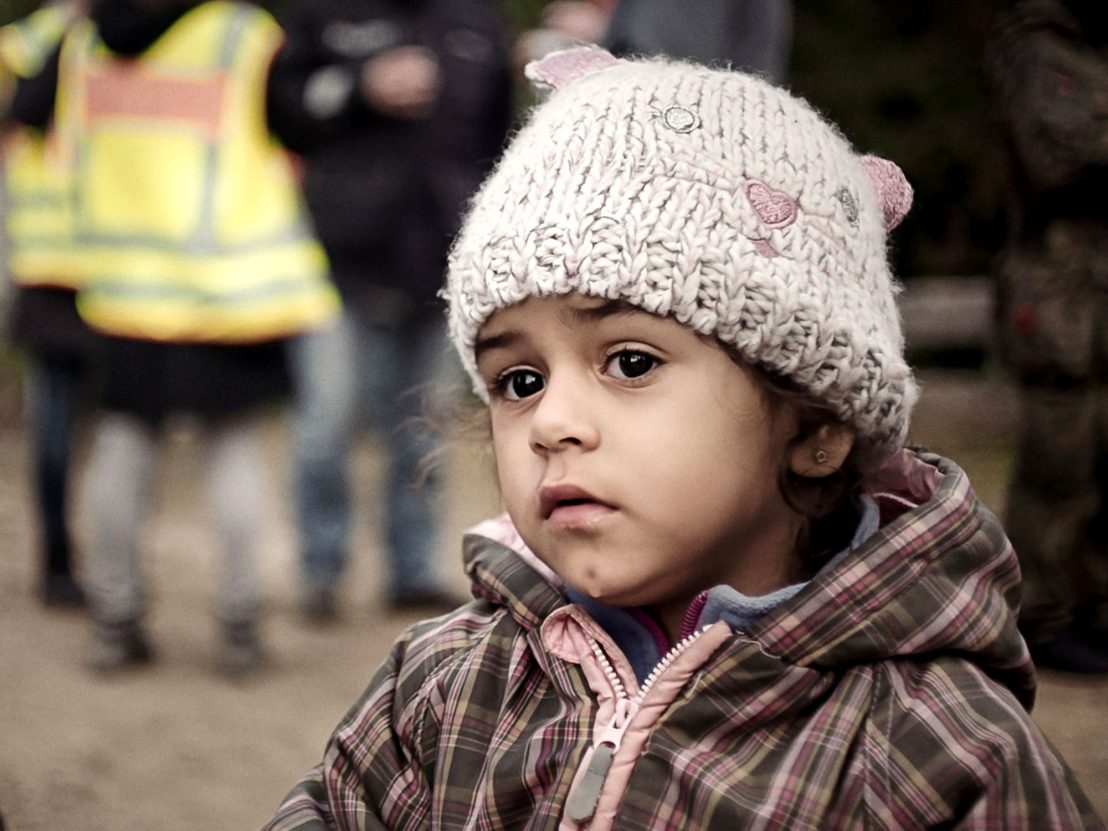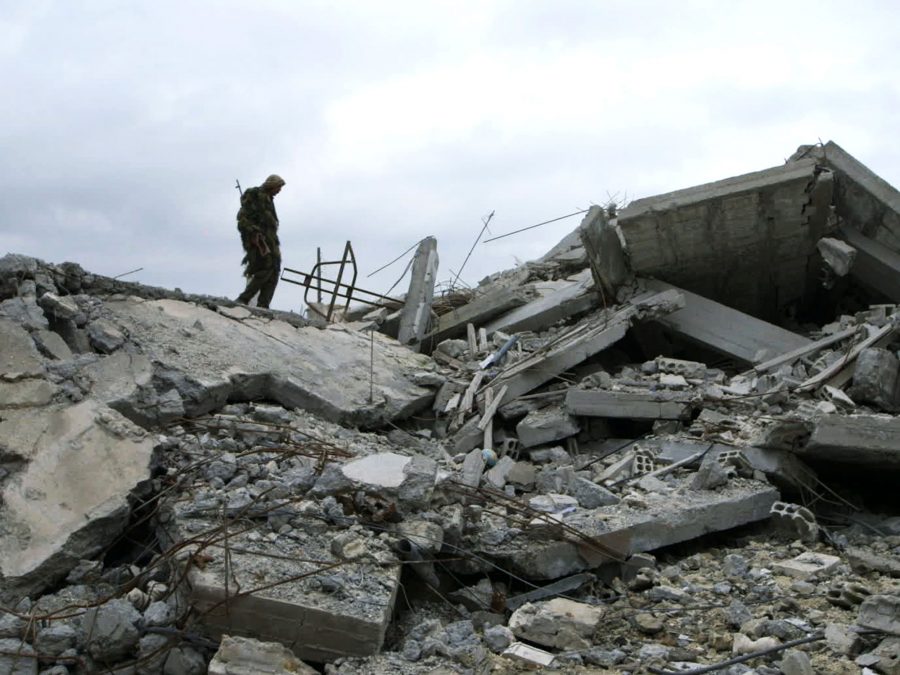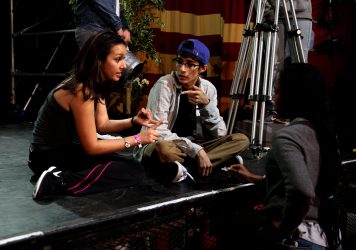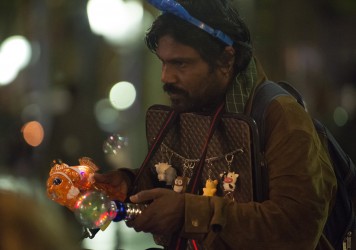
At Sheffield Doc/Fest a trio of films reveal the horror and hope at the heart of the conflict.
In an overview of the ongoing conflict in Syria, Richard Beck wrote that, “the Syrian War is at once incomprehensibly byzantine and very simple.” A basic root, the struggle between the nation’s president Bashar al-Assad and the nation’s people, has expanded into something extraordinary complex, involving countless competing nations, interests and ideologies, many which are entirely external from the region and its people.
More recently there’s been a rush to represent the conflict cinematically, a trend which shows no sign of cessation. As time passes, our understanding becomes more nuanced and focus shifts. After the rush to narrativise in the immediacy of the conflict but before the desire to broadly historicise from a position benefitted by hindsight, comes a more welcome stance, one that favours simplicity. These films, humbler and more focused, look at the people directly effected first and foremost, placing individual experiences within a wider sociopolitical context.
At the 2017 edition of Sheffield Doc/Fest three new documentaries show the reality of life in Syria, offering points of subjectivity and specificity from which to approach a incomprehensible, unapproachable whole. The most straightforward yet in many ways the most powerful is Egil Håskjold Larsen’s 69 Minutes of 86 Days, which follows a Syrian family’s migratory journey from Greece to Sweden. Consisting entirely of material recorded in roaming Steadicam, stitched diaristically as the title suggests, the film adopts the point of view of the family’s youngest member, three-year-old Lean. The camera glides around the environment at her eye-level, shifting the scale and the perspective of events.
Aside from the interspersed cello-and-piano to guide proceedings, there is no narrative to speak of. Any story is built by the viewer through grace notes spotted in the images selected, be it a young girl clinging desperately to a teddy bear, the grip of a sister’s hug turning vice-like, or the tired smile of a burdened father listening to his daughter’s stories.
As the family move through brief pauses, in makeshift beach camps, first aid tents or roadside hiatuses, and all manner of movements, in car, coach, train or on foot, the camera is constantly rolling just behind, an aesthetic technique familiar to fiction and increasingly widespread in documentary. With it, the slightly peculiar sensation that by over-aestheticising something ostensibly miserable, it might be being done a disservice. Simultaneously though, the style is a relief. Forced passage such as this might be exhausting, dangerous, and indeed entirely undesirable, but that doesn’t mean it is only that. Some beauty is possible.

There’s a similar sentiment in Reber Dosky’s Radio Kobani, though with a decidedly larger dose of bleakness. Looking at Kobani, a Syrian city on the Kurdish border occupied, devastated and then relinquished by ISIS in a short space of time, Dosky provides a portrait of the city post-reclamation; focusing on a radio station started by Dilovan, a young resident building a platform to reflect the hope displayed in the reconstruction efforts of her city.
Switching between Dilovan’s broadcasts and observational material recorded around the city, Dosky’s film shows three years in Kobani, both during and after ISIS’ siege. Alongside interviews with resistance leaders, performances from local musicians and downtime in parks or barbershops, there’s interspersed footage of shelled buildings being rebuilt and bodies being shovelled. These tonal switches, moving swiftly from levity to severity, reflect a conflict that is central to the film, between horror and hope.
While Dilovan’s project is positive – creating a community space in a devastated area that serves to give voice to locals who had been silenced – that which drives it is anything but. The film’s narration, a letter to her unborn child, details both Dilovan’s hopes for Syria’s future and her own personal pain – both generalised, as trauma can be and optimism inevitably is, and extremely specific, as when describing an incident in which a friend was beheaded in front of her. “A war has no winners, both sides always lose,” she says. Even after the severest of trauma, people find the will to carry on.
Matthew Heinemann’s City of Ghosts takes place in another sieged Syrian city, IS stronghold Raqqa, focusing on the city’s citizen journalist network, Raqqa is Being Slaughtered Silently (RBSS), a group that records and releases in secret from this controlled zone, at considerable risk. Heinemann’s film opens with Aziz, the group’s humble spokesperson having his picture taken whilst accepting the International Press Freedom Award. Cavalierly the photographer says to him, “you’re so serious my friend, how about a little smile?” Had that photographer seen the documentary to follow, by the time this scene, used as a cyclical framing device, is returned to, he’d understand why a smile might not be so forthcoming.
The most pained of all the Syria documentaries at this year’s Doc/Fest, City of Ghosts manages a tricky thing, mixing media to explore three points – the journalistic work itself, the context in which it takes place, and the people behind it – all with relative clarity and emotional rigour. Central to this is a struggle, between the urgency and value of this work and the ruinous personal impact of being involved with it, the danger not just to those in the group, but to anyone connected to them.
In one scene, a RBSS member and his brother watch the video ISIS released of his father’s execution, explaining that viewing it reminds him of the importance of his mission, before noting that each time he does, it makes him so angry he unconsciously draws blood from his gums. Later on, after leafing through photos of all those lost, he trembles violently and compulsively inhales a cigarette. In a film of considerable dramatic resonance, this, brave, broken man’s concluding statement is at once the gravest, and most powerful, of any offered by the films at Sheffield. “Either we will win, or they will kill all of us.”
City of Ghosts screens at Sheffield Doc/Fest on 10 and 12 June, and is released in UK cinemas on 21 July; Radio Kobani screens on 12 June; 69 Minutes of 86 Days screens on11, 12 and 14 June. For more info visit sheffdocfest.com
Published 8 Jun 2017

By Matt Turner
Filmmakers from across the region are challenging perceptions through intimate, personal storytelling.

The founder of Ghetto Film School discusses the challenges of improving the visibility of marginalised groups.

By Tom Bond
Miguel Gomes, Jacques Audiard and others are capturing a shifting continental mood.